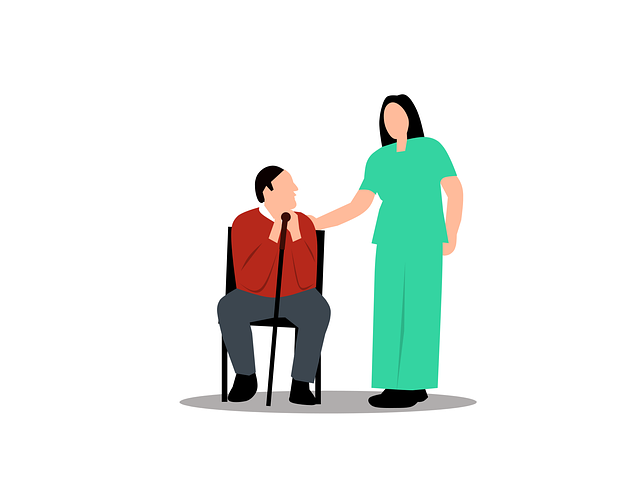Choosing a nursing home in Pennsylvania requires prioritizing safety measures to protect aging loved ones from risks like elder abuse and sexual assault. Facilities should have well-maintained buildings, clear exits, security, regular staff training, effective communication, and policies addressing these issues. Families should seek homes that employ trained professionals and prioritize resident dignity. Legal rights are crucial; consulting an elderly sexual assault lawyer in Pennsylvania can aid in ensuring safety, securing justice for mistreatment, and understanding state regulations. A checklist focusing on rigorous security protocols and transparent incident reporting is essential. These lawyers play a vital role in supporting victims of elder abuse and navigating complex legal processes within the state's regulatory framework.
Choosing a nursing home is a critical decision, especially when prioritizing your loved one’s safety. Lancaster residents must understand that a secure environment is essential for elderly well-being. This article guides you through the process of selecting a safe nursing home by exploring legal rights, potential risks to seniors, and key assessment criteria.
Additionally, we delve into the unique aspect of elderly sexual assault prevention in Pennsylvania, highlighting the vital role an experienced elderly sexual assault lawyer plays in ensuring justice and protection.
Understanding the Importance of Safety in Nursing Homes
Choosing a nursing home is a crucial decision, especially when considering the safety and well-being of our aging loved ones. In Pennsylvania, where an increasing number of elderly residents require long-term care, understanding the importance of safety measures in these facilities cannot be overstated. Safety in nursing homes goes beyond basic amenities; it encompasses preventing accidents, injuries, and, crucially, addressing potential risks like elder abuse and sexual assault.
Elderly individuals, often vulnerable due to age and health conditions, require a secure environment. Nursing home residents rely on staff for their daily needs, making it imperative that facilities have robust safety protocols in place. This includes well-maintained buildings, clear emergency exit routes, proper security measures, regular staff training, and effective communication systems. Moreover, with the growing awareness of sexual assault against the elderly, Pennsylvania residents and their families must seek homes that prioritize prevention, have policies in place to address such issues, and employ trained professionals who can ensure the safety and dignity of every resident.
Identifying Potential Risks for Elderly Residents
Identifying potential risks is a crucial step in choosing a safe nursing home for elderly residents in Lancaster, Pennsylvania. Unfortunately, vulnerable seniors may be at higher risk for various forms of abuse and neglect, including sexual assault. This becomes a significant concern as the population ages, and more individuals require long-term care. Recognizing these risks early on can help prevent tragic outcomes.
Nursing homes should have robust safety protocols in place to safeguard their residents. This includes regular staff training on recognizing and reporting abuse, secure living spaces, and well-maintained security systems. Additionally, a comprehensive assessment of each resident’s needs and limitations is essential to identify potential hazards and implement preventive measures. Families and caregivers should also be encouraged to voice any concerns or observations they have regarding the home’s safety and overall care.
Legal Considerations and Your Rights as a Resident or Relative
When considering a nursing home in Lancaster, it’s crucial to understand your legal rights and the protections in place for elderly residents. In Pennsylvania, there are strict regulations governing long-term care facilities to ensure the safety and well-being of its inhabitants. As a relative or prospective resident, you have the right to access records, inspect the facility, and be informed about policies regarding medication management, patient rights, and grievance procedures.
In case of any mistreatment, abuse, or negligence—including potential cases of elderly sexual assault—know that you possess specific legal avenues for recourse. Consulting with an experienced elderly sexual assault lawyer in Pennsylvania can provide guidance on your rights and help ensure justice for the affected individual.
Assessment Criteria for Choosing a Safe Facility
When selecting a nursing home in Lancaster, PA, safety should be the top priority, especially given concerns like potential elder abuse and, in rare instances, even sexual assault. To ensure a secure environment for your loved ones, create a checklist of assessment criteria. Look for facilities that maintain rigorous security protocols, including 24/7 staffing, surveillance systems, well-lit corridors, and restricted access points. Regular staff training on recognizing and reporting abuse or assault is also paramount.
Consider the presence of emergency response systems, regular safety inspections, and an open line of communication between residents, families, and management. A transparent reporting structure for incidents, as well as a proven track record of adhering to state safety standards, are strong indicators of a facility’s commitment to its inhabitants’ security. Engaging an elderly sexual assault lawyer in Pennsylvania can also provide valuable insights into the legal protections and rights available to ensure safe living conditions for vulnerable seniors.
Role of an Elderly Sexual Assault Lawyer in Pennsylvania
In cases of elderly sexual abuse, an elderly sexual assault lawyer in Pennsylvania plays a pivotal role in ensuring justice and protecting the rights of their clients. These specialized attorneys have extensive knowledge of the legal system and understand the unique challenges faced by older adults who have experienced such traumatic incidents. They provide crucial support by offering guidance through complex legal procedures, helping to gather evidence, and advocating for compensation and restorative measures.
Pennsylvania has specific laws and regulations in place to protect the vulnerable elderly population, and an expert lawyer can help navigate these. They are well-versed in identifying signs of abuse, understanding consent laws, and dealing with medical records. Furthermore, they can assist in filing reports with relevant authorities, pursuing civil lawsuits against perpetrators or facilities that failed to prevent the assault, and offering emotional support throughout the legal process.





